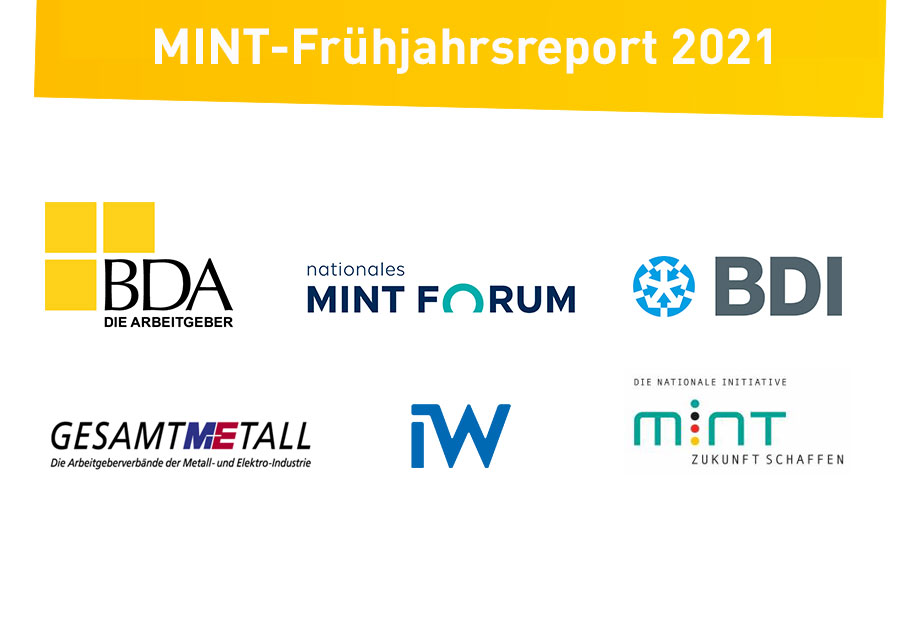- TOPICS
-
-
- Employment and Labour Market
- Labour law and collective bargaining policy
- General applicability
- Industrial action
- Labour & collective bargaining law
- Working time
- Time limit
- Works Constitution
- Bureaucracy reduction
- Data protection
- Protection against discrimination
- Parental leave
- Posting
- Insolvency
- Protection against dismissal
- Minimum wage
- Co-determination
- Mobile work
- Maternity protection
- Pandemic
- Care time
- Self-employment
- Tariff autonomy
- Collective Bargaining Agreement
- Collective bargaining unit
- Tariff policy
- Collective bargaining
- Collective agreement
- Part-time work
- Restructuring
- Holiday law
- Contracts for work
- Whistleblowing
- Temporary work
- Education and vocational training
- Training market
- Professional orientation
- Education policy
- Education 4.0
- Dual education
- dual study
- Permeability
- Early childhood education
- Higher Education Funding
- Lifelong learning
- Teacher Education
- Reorganization of education and training
- STEM Professionals
- Economic education
- Accreditation/Quality assurance
- SCHOOLBUSINESS Germany
- Digitalization and innovation
- Europe and International Affairs
- Social policy and social security
- Old-age poverty
- Work made in Germany
- Occupational safety
- Contribution and registration law
- Company pension scheme
- Shortage of company doctors
- Health insurance
- Long-term care insurance
- Mental health
- Pension insurance
- Riester pension
- Social self-government
- Social insurance
- Accident insurance
- The future of social security
- Taxes & Finances
- Economy & Society
-
-
-
- Newsroom
- The BDA
- Members

MINT Spring Report 2021

STEM gap rises again to 145,100. Digitisation, decarbonisation and demographics increase future demand - pandemic reduces supply:
Berlin, 27 May 2021 The economic slump associated with the Corona crisis has been overcome in the STEM sector (mathematics, information technology, natural sciences, technology). The STEM gap is rising again after lows in the fall of 109,000, reaching 145,100 in April. Structural effects from digitization, decarbonization, and demographics will greatly increase demand in the coming years, while the pandemic is expected to cause a decline in STEM talent. These are the key findings of the STEM Spring Report 2021.
Prof. Dr. Axel Plünnecke, Head of Education, Immigration and Innovation at the Institute for Economic Research in Cologne, Germany: "A large number of companies expect an increasing demand for IT experts and other STEM professionals in the coming years due to digitization and the development of climate-friendly technologies and products. In addition, the annual demographic-related replacement demand for STEM graduates will increase by a good 26,000 over the next ten years. The next generation of STEM professionals, on the other hand, is at risk of falling significantly without countermeasures due to the negative effects of pandemic-related school closures on students' STEM skills and career and academic orientation, and declining numbers of students from abroad."
Dr. Michael Stahl, Managing Director Education and Economics of the employers' association Gesamtmetall: "The metal and electrical industry employs around 37 per cent of all MINT skilled workers in Germany and is urgently dependent on the next generation of MINT workers to secure its ability to innovate. This is why we are concerned about the growing demographic gap, particularly among professionally qualified MINT skilled workers, who will increasingly retire from the workforce in the coming years. This is where dual vocational training in STEM occupations is key. We expect STEM training numbers to rise noticeably again in the coming years after a Corona-induced decline in 2020."
Thomas Sattelberger MdB, Chairman of the Board of the "MINT Zukunft schaffen" initiative: "Good STEM skills among students are the key to a successful professional future. STEM education, which is already in need of improvement, has suffered particularly as a result of the lockdown and inadequate digitization of schools. Now everything must be done to ensure that the tutoring and support measures planned throughout Germany are actually implemented systematically and as individually as possible, and that the funds, which are always in short supply, do not flow slowly but quickly. At the same time, the Digital Pact for Schools must finally be implemented in such a way that we are not only prepared for emergency situations, but can also fully exploit the opportunities offered by digitisation, particularly for STEM education. Otherwise, up to a third of pupils risk being left behind."
Edith Wolf, co-spokesperson of the National MINT Forum: "It is already foreseeable that we will find ourselves in a difficult situation when it comes to solving all the major issues of the future - such as shaping the climate turnaround, digitalization, and coping with the pandemic. That is why the promotion of STEM education must now be given a much higher priority. In our MINT Action Programme 2.0, we make concrete proposals to this end: Policymakers must recognize and better highlight the close connection between STEM professions and upward mobility potential. They must strengthen schools with new personnel categories and attractive working conditions for STEM teachers. In the future, it will be particularly important that political responsibility for education is no longer postponed, but that cooperative thinking takes place here: between the federal, state and local governments, as well as across departments at the federal level."
Download here the complete Study as well as the Press release and the Factsheet to the MINT-Trendreport.
The MINT Report is produced twice a year by the Cologne Institute for Economic Research. The study is commissioned by the Confederation of German Employers' Associations, the employers' association Gesamtmetall, the Federation of German Industries and the initiative "MINT Zukunft schaffen". Gesamtmetall, BDA and "MINT Zukunft schaffen" are members of the National MINT Forum.






